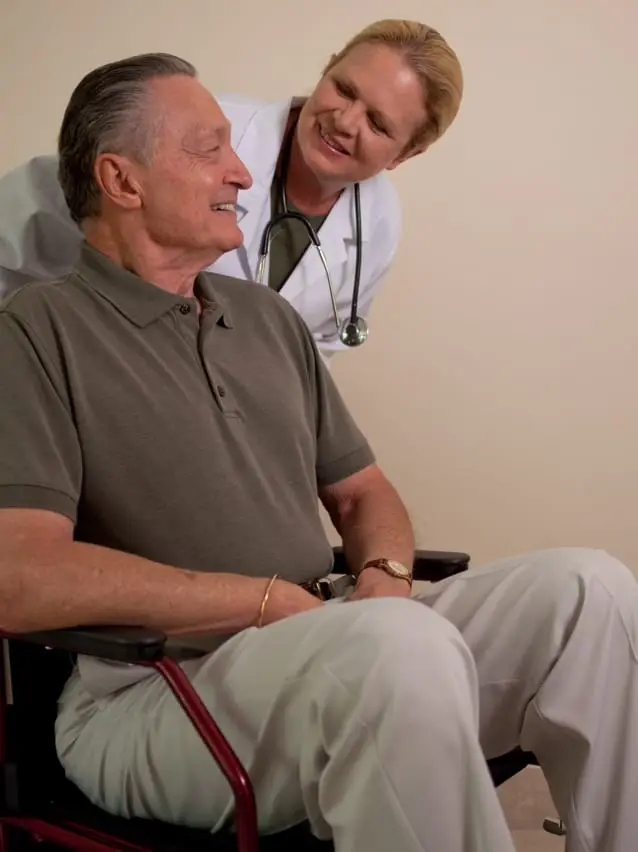01_Le: Dementia, Delirium & Depression: Similarities, Differences, and Treatments
23 Topics | 1 Quiz
02_Le: Dementia, Delirium & Depression: Causes & Risk Factors
22 Topics | 1 Quiz
03_Le: ADLs: Assisting With Bathing & Showering
25 Topics | 1 Quiz
04_Le: ADLs: Assisting With Dressing
16 Topics | 1 Quiz
05_Le: ADLs: Assisting With Grooming
15 Topics | 1 Quiz
06_Le: Caregiver Stress: Detecting Stress, Burden & Depression
20 Topics | 1 Quiz
07_Le: Caregiver Stress: Coping Strategies
30 Topics | 1 Quiz
08_Le: Promoting Healthy Sleep Patterns
12 Topics | 1 Quiz
09_Le: Problems with Sleep: Managing Nighttime Awakenings and Wandering
9 Topics | 1 Quiz
10_Le: Problems with Sleep: Managing Hallucinations, Illusions, Delusions, Nightmares, Sundowning, Anxiety and Depression
11 Topics | 1 Quiz
11_Le: Guidelines for Improving Communication
14 Topics | 1 Quiz
12_Le: Using Communication to Manage Challenging Behaviors
8 Topics | 1 Quiz
13_Le: Activity-Focused Dementia Care: Meaningful Activities
14 Topics | 1 Quiz
14_Le: Activity-Focused Dementia Care: Person-Centered Care and Environments
12 Topics | 1 Quiz
15_Le: Activity-Focused Dementia Care: Preventing Excess Disability and Difficult Behaviors
12 Topics | 1 Quiz
16_Le: Difficult Behaviors Associated with Dementia
15 Topics | 1 Quiz
17_Le: Managing Difficult Behaviors
30 Topics | 1 Quiz
18_Le: Early Stages: Family Involvement & Planning
23 Topics | 1 Quiz
19_Le: Early Stages: Intimacy & Sexuality
19 Topics | 1 Quiz
20_Le: Environment Issues: Designing Safe Environments
20 Topics | 1 Quiz
21_Le: Environment Issues: The Human Environment
12 Topics | 1 Quiz
22_Le: Traveling, Driving, Holidays & Special Occasions
32 Topics | 1 Quiz
23_Le: Late Stages: Communication and Activities
26 Topics | 1 Quiz
24_Le: Late Stages: Hospice and Bereavement
21 Topics | 1 Quiz
25_Le: Late Stages: Personal Care
31 Topics | 1 Quiz
26_Le: Late Stages: Behavior and Sleep
22 Topics | 1 Quiz
27_Le: Managing Incontinence
13 Topics | 1 Quiz
28_Le: Nutrition
27 Topics | 1 Quiz
29_Le: Memory Impairment: Risk Factors
25 Topics | 1 Quiz
30_Le: Memory Impairment: Prevention & Improving Functioning
13 Topics | 1 Quiz
31_Le: Continuum of Care: At Home Care With In-Home Assistance
11 Topics | 1 Quiz
32_Le: Continuum of Care: Adult Daycare and Residential Care
11 Topics | 1 Quiz
01_Te: Dementia Treatment (Continued)

- NMDA antagonist
- Memantine (trade name Namenda®)
- Combination therapy is more effective
- Managing behavior symptoms
- Medications
- Non-drug therapies first or in combination with drug therapy.
